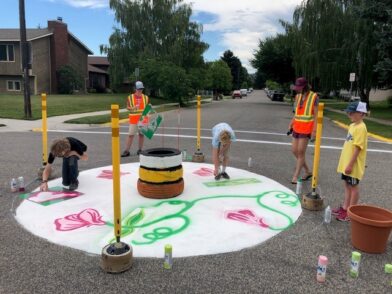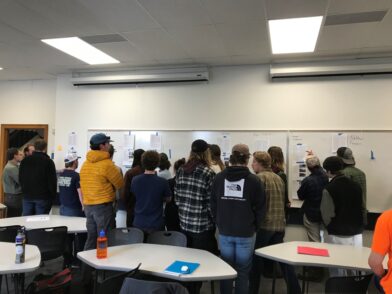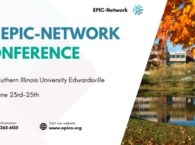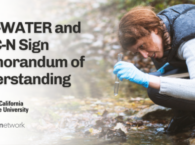Susan Gallagher identifies successful practices transportation agencies can use for workforce development

Susan Gallagher
Director,
Community-engaged And Transformational Scholarship (CATS) Initiative
and
Education and Workforce Program Manager,
Western Transportation Institute
Montana State University,
sgallagher@montana.edu
406-994-6559



Favorite Place
My local community appreciates and values the outdoors and outdoor recreation. I love the local trails, access to the mountains, and the beauty of our local environment.
What was your first interaction with a school-community partnership project?
Managing the CATS program (the MSU EPIC-N program), I’ve had the opportunity to observe students and community partners interacting with mutual respect and admiration. I wish I had had similar opportunities as an undergraduate.
How did you first learn about EPIC-N?
I believe I attended a webinar about the University of Oregon’s Sustainable Cities Year Program many years ago, before there was an EPIC-N. I thought it was a great model then and I’m happy the opportunity presented itself to apply the model at MSU.
What are some of the top priorities you are working on this year?
I am working on maintaining a positive partnership experience between MSU and the City of Bozeman despite the pandemic and in strategizing avenues for attracting new community partners for the coming years despite the current difficulties.
In what ways are you looking to engage, or work with others, either from within the EPIC-Network, or in general?
I would like to engage more transportation agencies to work as community partners with EPIC-N programs throughout the U.S.
Why do you think the EPIC-Network is important?
I think it is so important to have a network to share resources and ideas and to problem solve as programs develop and mature. The resources have been so critical in decreasing the workload for a newly launching program.
What is your favorite part of the EPIC-Network?
I enjoy the conferences, getting to know others in the network, and the open and supportive environment from the board and other members.
What do you want a community, or university, to know about the EPIC-Network?
I would like more transportation agencies to consider this model, to know about the network, and to consider working with universities in the network. I would like them to better understand how critical engaging with college students is for the purposes of workforce development.
What led you to participate within the EPIC-Network in your current capacity?
My role as the Director of a Transportation Workforce Center was to identify successful practices that could be implemented by transportation agencies for workforce development and to provide them with the resources and support to catalyze new partnerships. EPIC-N is exactly one of those key resources that they need to utilize.
What are you hoping attendees will take with them after listening to the recording of your presentation?
On December 2, Susan’s “Transportation Agency – University Partnership Playbook” will be published to the EPIC-N Member Commons.
I want university EPIC-N programs to understand how integral transportation is to communities (in terms of sustainability, quality of life, equity, and all the other topic areas that programs are working on) and to encourage them to reach out to transportation agencies as community partners. I want transportation agencies to understand what EPIC is and how they can work with universities to implement mutually-beneficial partnerships and what resources are available to them to assist in this process.
Bio
Susan Gallagher is the Education and Workforce Program Manager at the Western Transportation Institute, a transportation research center at Montana State University. Her professional roles include promoting student research involvement and experiential learning opportunities; overseeing workforce development and continuing education initiatives for the Center; and K-12 outreach. She is also the Director of the West Region Transportation Workforce Center, a resource center serving a ten-state regional network of transportation organizations, workforce advocates, and educational institutions to communicate best practices, catalyze new strategic partnerships, and leverage resources to enhance the transportation workforce at all levels.


